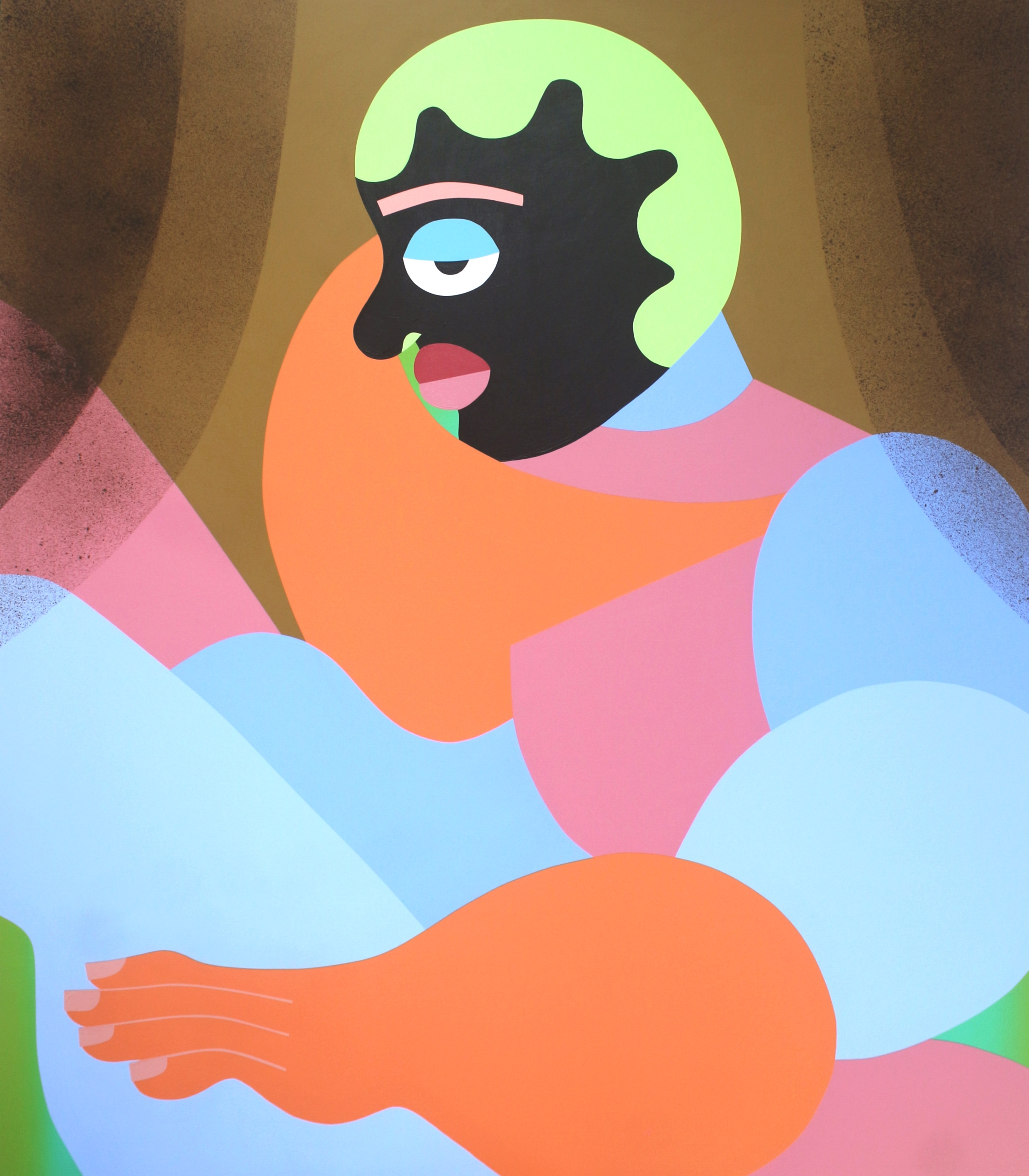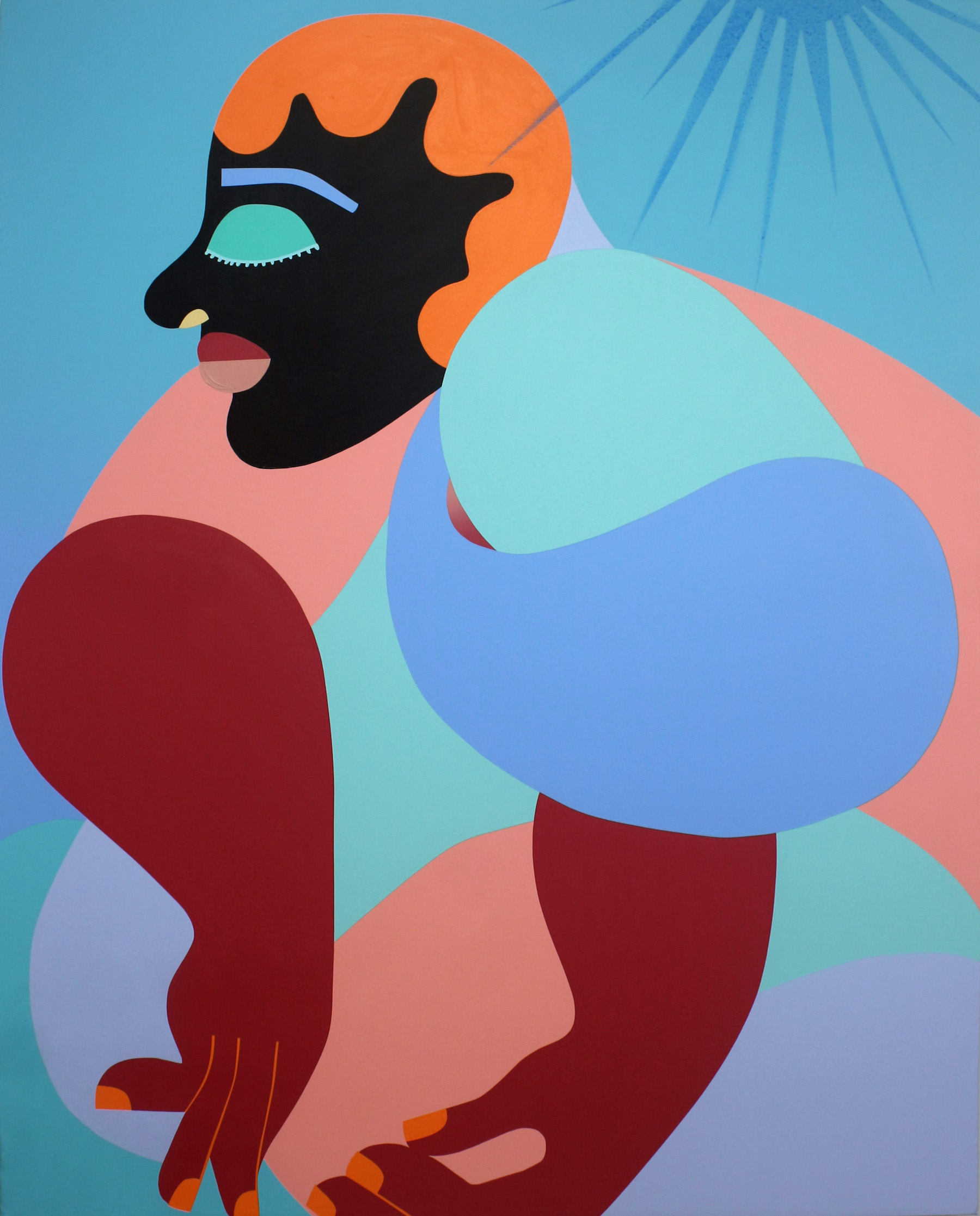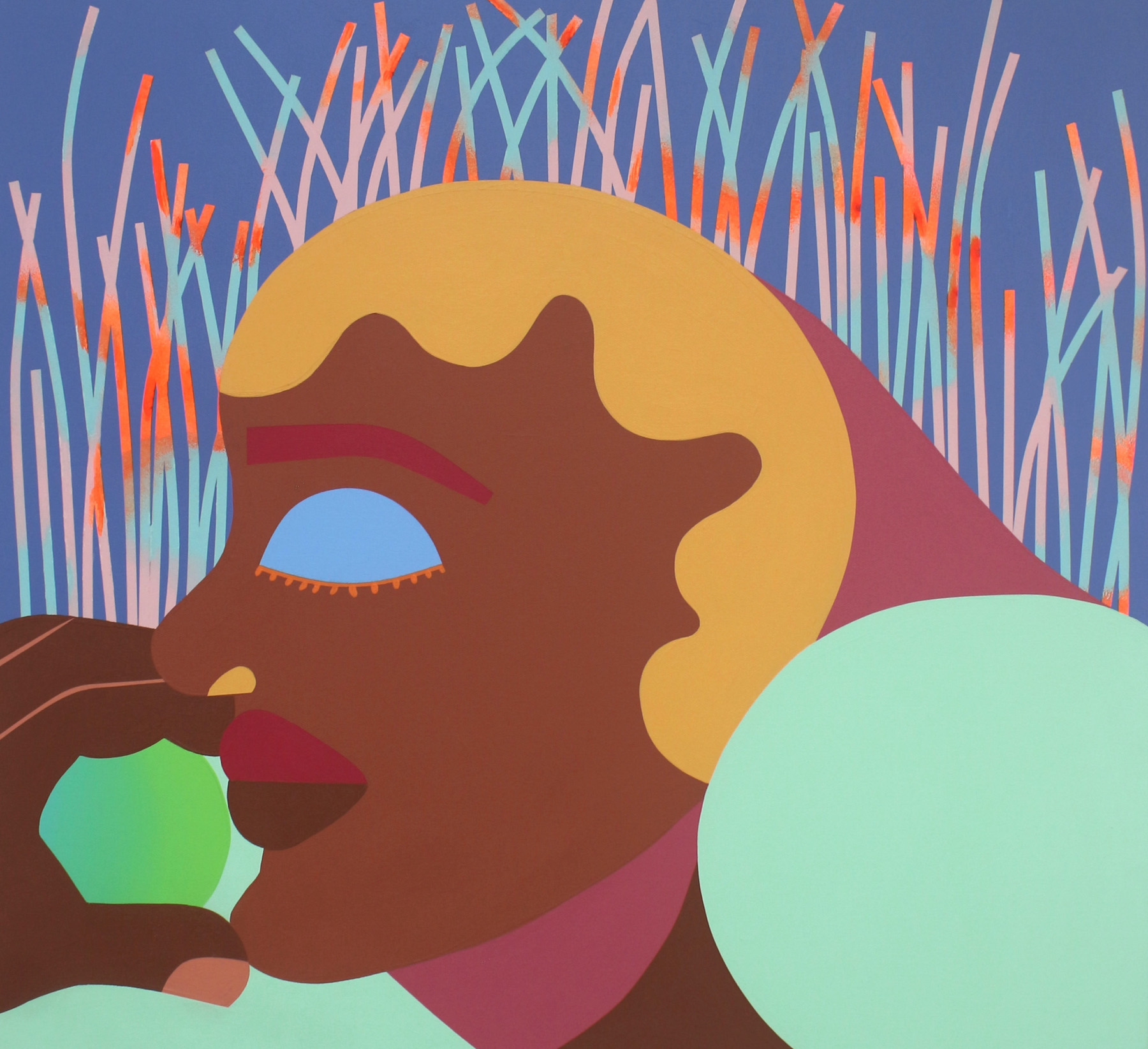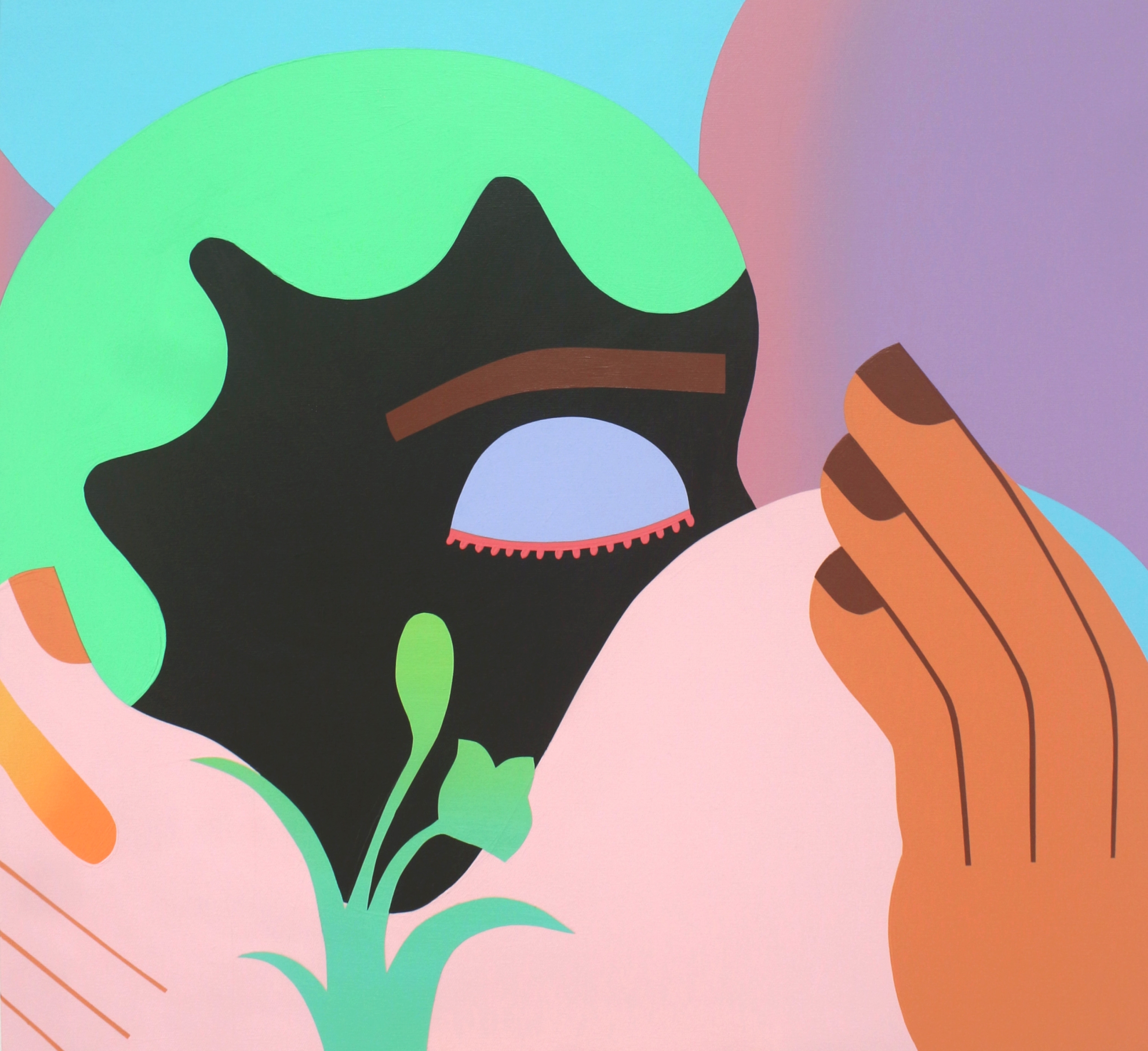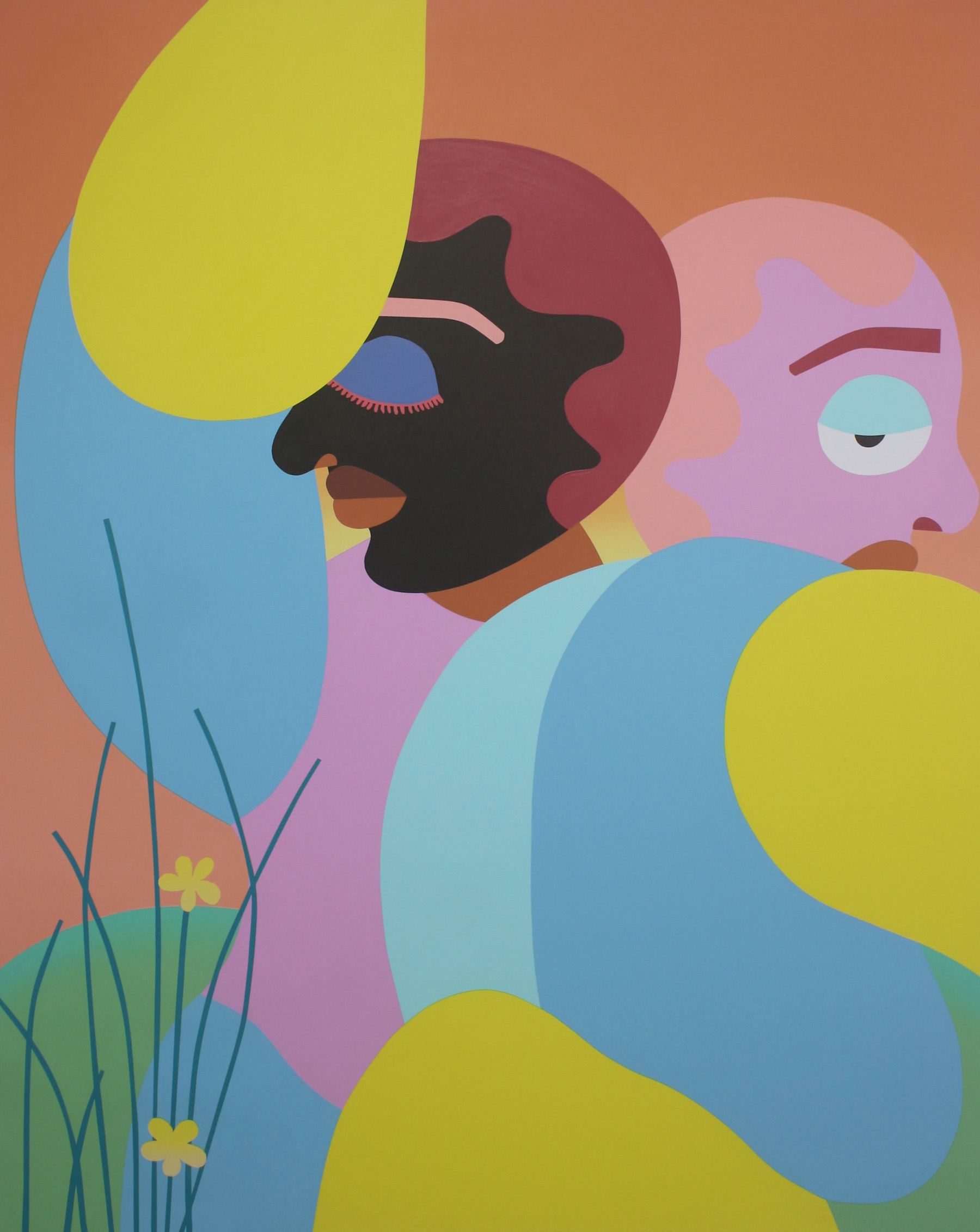Nigerian artist Deborah Segun adopts a deconstructed, reductive, and almost Cubist approach to her paintings, incorporating fragmented and exaggerated shapes, faces, and forms that delineate the female figure in contemplation or repose. Segun’s work exaggerates the feminine silhouette and is perhaps a commentary on the representation of women in an art historical context, from the exaggerated proportions of The Venus of Willendorf or the multi-perspectival views of Picasso, who is an obvious inspiration to the young Lagos based artist.
Segun’s work, however, is slightly more internalized. There is an element of truth that many artists need to self-reflect before turning the lens outward. And while inspired by her personal experience, and her awareness of her mental and physical sense of self, Segun’s choice to focus on the individual becomes a reference point for a much larger schematic: transitions and phases in her life, including self-hate to self-acceptance, are undoubtedly issues that many women – African and otherwise – have experienced. Segun comes from a strong need of being at one with mind and body – a life-long search for harmonious balance within one’s self. In other words, a continuous journey toward self-realization.
There is a sense of a young artist and woman coming of age in these works – they are simultaneously vibrant but also codified, obscured, and protected. These works serve almost as a visual diary of how the young painter continues to define and redefine herself in a larger context. Segun describes her practice as a way of challenging reality and pushing herself to create alternative ways to position herself in contemporary art and society.

